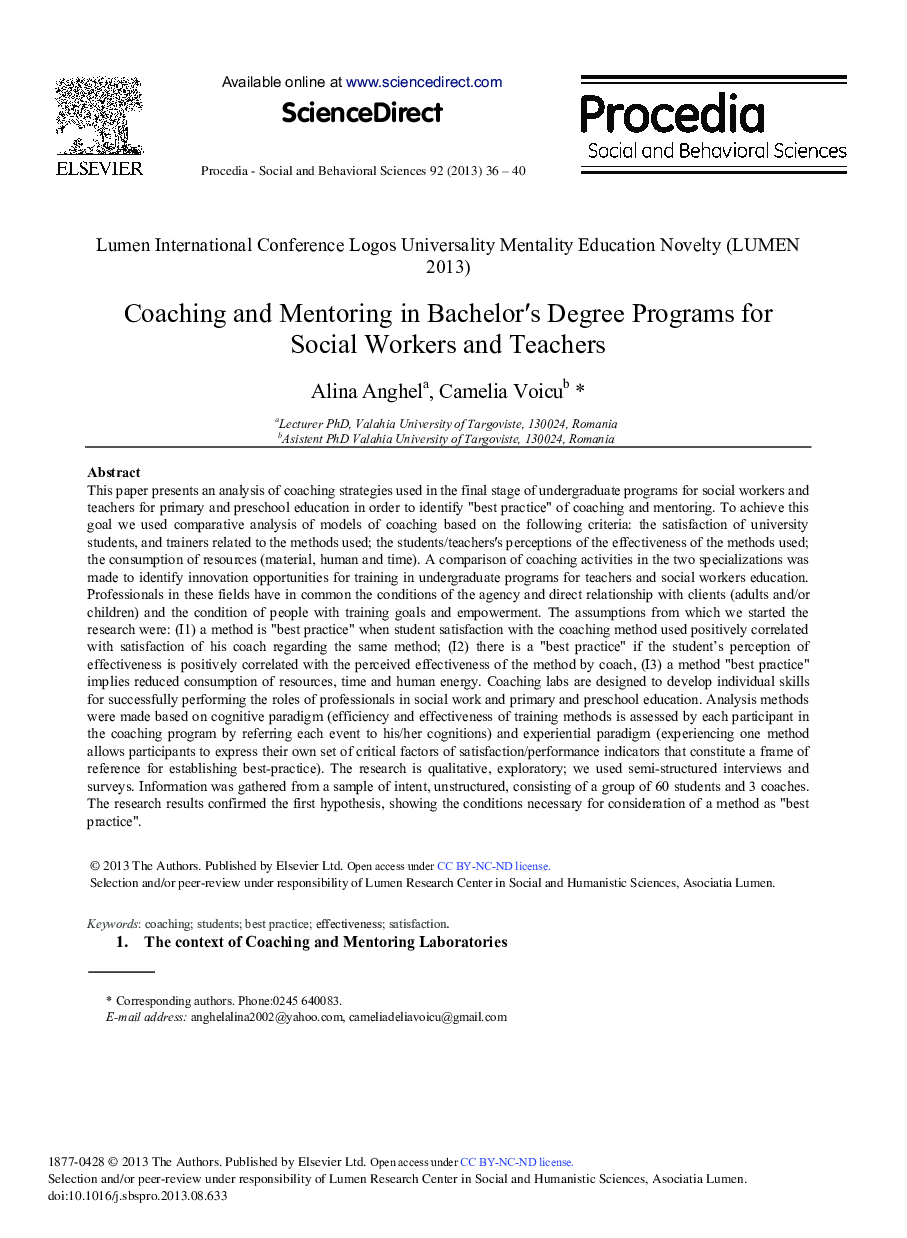| کد مقاله | کد نشریه | سال انتشار | مقاله انگلیسی | نسخه تمام متن |
|---|---|---|---|---|
| 1117889 | 1488467 | 2013 | 5 صفحه PDF | دانلود رایگان |

This paper presents an analysis of coaching strategies used in the final stage of undergraduate programs for social workers and teachers for primary and preschool education in order to identify “best practice” of coaching and mentoring. To achieve this goal we used comparative analysis of models of coaching based on the following criteria: the satisfaction of university students, and trainers related to the methods used; the students/teachers′s perceptions of the effectiveness of the methods used; the consumption of resources (material, human and time). A comparison of coaching activities in the two specializations was made to identify innovation opportunities for training in undergraduate programs for teachers and social workers education. Professionals in these fields have in common the conditions of the agency and direct relationship with clients (adults and/or children) and the condition of people with training goals and empowerment. The assumptions from which we started the research were: (I1) a method is “best practice” when student satisfaction with the coaching method used positively correlated with satisfaction of his coach regarding the same method; (I2) there is a “best practice” if the student's perception of effectiveness is positively correlated with the perceived effectiveness of the method by coach, (I3) a method “best practice” implies reduced consumption of resources, time and human energy. Coaching labs are designed to develop individual skills for successfully performing the roles of professionals in social work and primary and preschool education. Analysis methods were made based on cognitive paradigm (efficiency and effectiveness of training methods is assessed by each participant in the coaching program by referring each event to his/her cognitions) and experiential paradigm (experiencing one method allows participants to express their own set of critical factors of satisfaction/performance indicators that constitute a frame of reference for establishing best-practice). The research is qualitative, exploratory; we used semi-structured interviews and surveys. Information was gathered from a sample of intent, unstructured, consisting of a group of 60 students and 3 coaches. The research results confirmed the first hypothesis, showing the conditions necessary for consideration of a method as “best practice”.
Journal: Procedia - Social and Behavioral Sciences - Volume 92, 10 October 2013, Pages 36-40